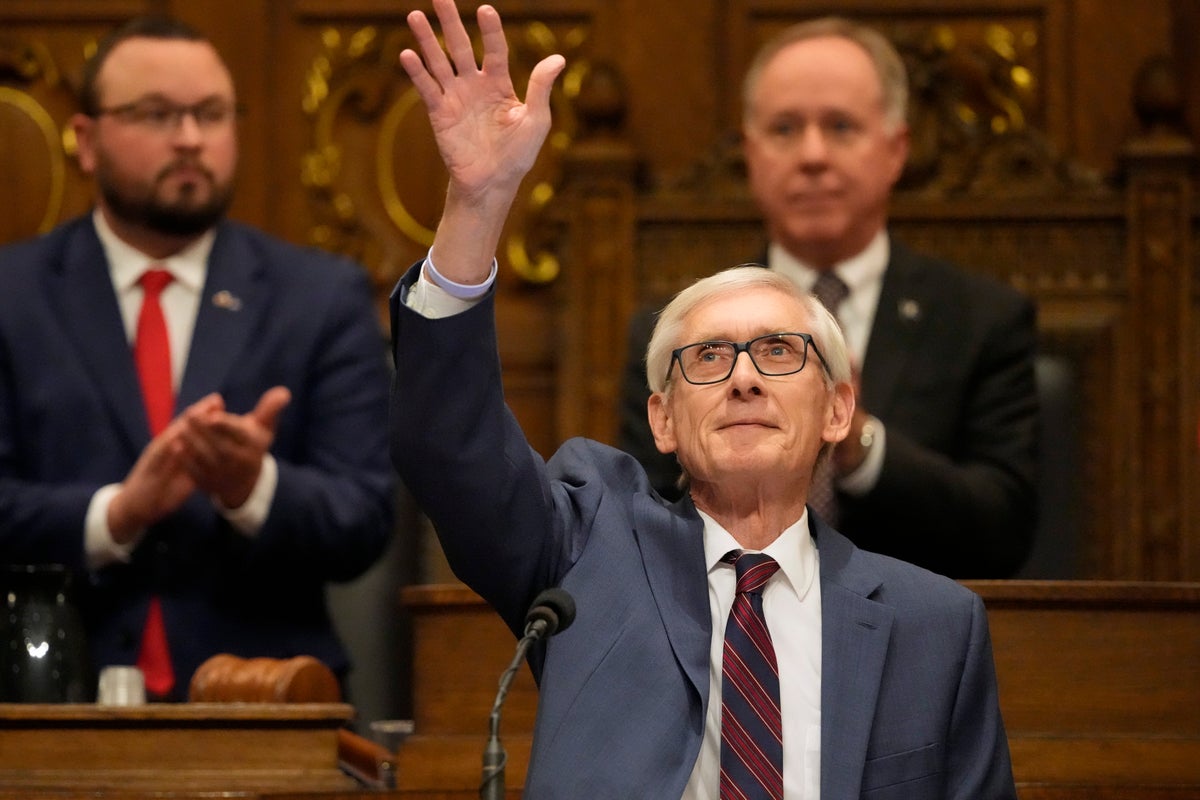
Wisconsin Democratic Gov. Tony Evers used his seventh State of the State speech Wednesday to urge the Republican-controlled Legislature to enact a wide range of proposals they have rejected in the past, including numerous gun control measures just a month after there was a school shooting not far from the state Capitol.
Here's what to know about the speech from Evers, a Democrat who may run for a third term next year in the battleground state:
A bipartisan approach to immigration and health care
Evers, without mentioning President Donald Trump by name, said “there is a lot of angst about what may happen in the days, months, and years ahead.”
“I have always been willing to work with anyone who is willing to do the right thing for the people of Wisconsin,” Evers said. “And that has not changed. But I will not compromise on our Wisconsin values of treating people with kindness, dignity, empathy, and respect.”
Evers called for bipartisan efforts to address immigration and promised to fight any attempt to repeal the Affordable Care Act. He also repeated his pledge to veto any bill that limits access to abortion, birth control, infertility treatments, or any other part of reproductive care.
Wisconsin is one of 22 states suing the federal government over Trump’s attempt to end birthright citizenship.
Wisconsin is one of the “blue wall” states that Trump won in 2016 but lost in 2020. Trump carried Wisconsin in 2024 on his way back to the White House.
Gun control is a renewed priority despite Republican opposition
Evers called for a series of gun control measures five weeks after school shooting just six miles (9.66 kilometers) from the Capitol that left a teacher and 14-year-old student dead. The 15-year-old shooter shot and killed herself.
Evers called for universal background checks for gun purchases and restoring a 48-hour waiting period for gun purchases, a law that Republicans repealed in 2015.
He also called for banning the purchase of “ghost guns” and closing a loophole that allows for domestic abusers to own firearms.
Evers also called for incentives and new requirements to safely secure firearms and a “red flag” law that would allow judges to take guns away from people determined to be a risk to themselves or others.
Republicans have repeatedly rejected the proposals in the past.
“We cannot let common sense get lost in debates over whether basic policies could have prevented the most recent shooting, or the one before it, or the one before that,” Evers said. “We aren’t here in Madison to quibble about the semantics of the last shooting; we are here to do everything we can to prevent the next one.”
The governor last week created a state office for violence prevention, which Republicans vowed not to fund after federal funding runs out in two years.
Evers, a former teacher and state superintendent of schools, also called for spending $300 million to provide comprehensive mental health services in schools statewide. That would be 10 times the amount the Legislature approved for school mental health services in the last budget.
Funding for child care, limits to prescription drug costs and other moves
Declaring 2025 as “The Year of the Kid," Evers called on Republicans to approve $500 million to lower the cost of child care. The bulk of that would go toward funding the Child Care Counts program, for the next two years. Without more funding, the program — which was created during the COVID-19 pandemic — is slated to end in June.
Evers also called for creating new programs designed to set price ceilings for prescription drugs and improve oversight of drug companies, removing the state sales tax on over-the-counter medications and capping the copay on insulin at $35.
He also repeated his previous call for them to allow for voters to place proposed law changes on the ballot themselves through referendums, something that Republican Assembly Speaker Robin Vos declared “dead on arrival.”
In an emotional moment, Evers welcomed the widow and parents of former state Rep. Jonathan Brostoff, who died by suicide in November. Evers, his voice cracking with emotion, talked about Brostoff's death when introducing a new program that would allow people to temporarily and voluntarily register to prevent themselves from purchasing a firearm.







